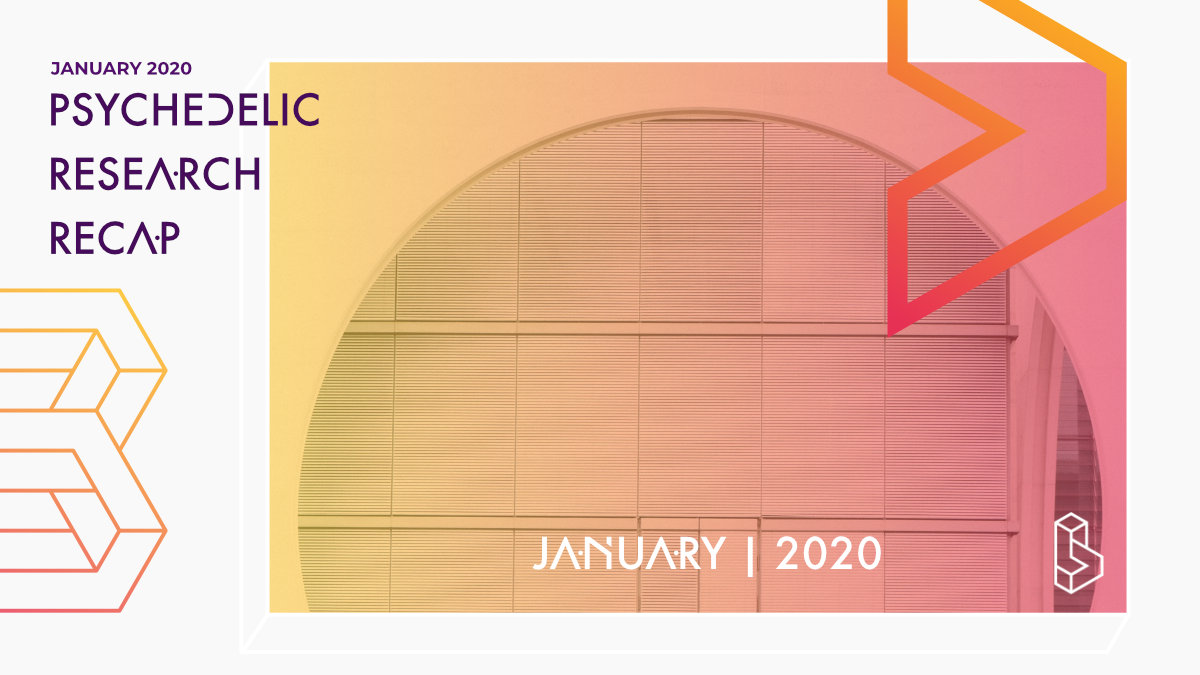This very first psychedelic research analysis by Blossom features two outstanding papers on psychedelics that were published in January 2020.
The first looks at how the (naturalistic) use of psychedelics is associated with a more positive mood, especially for those with a low well-being score and high neuroticism scores. The second paper presents a review of psychedelics for the treatment of psychiatric illnesses.
Reported effects of psychedelic use on those with low well-being given various emotional states and social contexts
Authors: Natasha L. Mason, Patrick C. Dolder & Kim P. C. Kuypers
Published: 30 Jan 2020
One-sentence summary: Based on a large-scale survey (n=1967), overall psychedelics-use is found to relate to a (change to) positive mood, the biggest change is for those with low well-being and high neuroticism scores.
“Background It has been suggested that the outcome of the psychedelic experience is dependent on set and setting. While scientific research into the therapeutic potential of psychedelics is growing, it is clear that in clinical populations an optimal set and setting will not always be attainable. It was aimed to assess under which emotional and environmental circumstances psychedelic users use psychedelics, and the outcome of use given clinical characteristics, defined as low well-being and higher rates of neuroticism. Methods Online respondents (N = 1967) provided information about their psychedelic use, environment they consume the substance in (setting), and mood state pre/post-substance (set). Based on subjective mental well-being, respondents were separated into two groups, those with low (N = 643), and those with normal well-being (N = 1324). Personality traits, with a particular focus on neuroticism, were also assessed. Results Findings showed that psychedelics such as lysergic acid diethylamide and psilocybin were most commonly used at home and methylenedioxymethamphetamine (MDMA) in a party/festival setting. In most instances, all substances were used when individuals were in a positive mood, and this remained in general positive, or, when not initially positive, shifted to positive, after use. Individuals with low well-being were more likely to experience a positive mood change after use of lysergic acid diethylamide, psilocybin or MDMA than individuals with normal well-being. Furthermore, as neuroticism scores increased, so did likelihood of positive mood change, as well as likelihood of experiencing negative side effects. Conclusion It is demonstrated that psychedelics are used in varying emotional states and environmental settings. Importantly in the light of future clinical studies with patients, individuals with low psychological well-being and higher scores of neuroticism report consuming such substances with positive outcomes.”
Also reported in PsyPost, Interesting Engineering and HappyMag.
A review of emerging therapeutic potential of psychedelic drugs in the treatment of psychiatric illnesses
Authors: Tingying Chi & Jessica A. Gold
Accepted: 31 Jan 2020
One-sentence summary: Review of research into psychedelics for the treatment of mental disorders, with caution on how to proceed.
“Though there was initial interest in the use of psychedelic drugs for psychiatric treatment, bad outcomes and subsequent passage of the Substance Act of 1970, which placed psychedelic drugs in the Schedule I category, significantly limited potential progress. More recently, however, there has been a renewal in interest and promise of psychedelic research. The purpose of this review is to highlight contemporary human studies on the use of select psychedelic drugs, such as psilocybin, LSD, MDMA, and ayahuasca, in the treatment of various psychiatric illnesses, including but not limited to treatment-resistant depression, post-traumatic stress disorder, end-of-life anxiety, and substance use disorders. The safety and efficacy as reported from human and animal studies will also be discussed. Accumulated research to date has suggested the potential for psychedelics to emerge as breakthrough therapies for psychiatric conditions refractory to conventional treatments. However, given the unique history and high potential for misuse with popular distribution, special care and considerations must be undertaken to safeguard their use as viable medical treatments rather than drugs of abuse.”
Become a psychedelic insider
Get a Pro Membership to enjoy these benefits & support Blossom📈 full reports on Topics & Compounds
🧵 full summary reviews of research papers
🚀 full access to new articles
See Memberships
